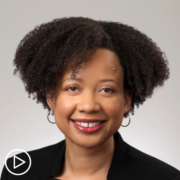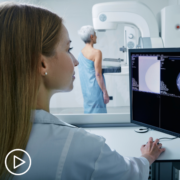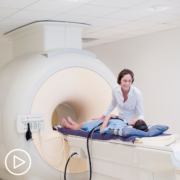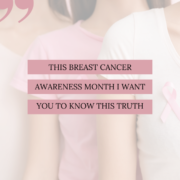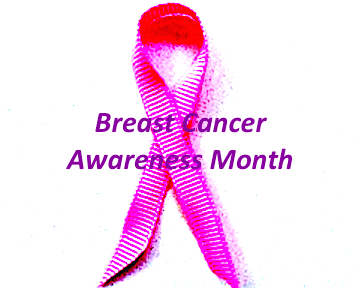How Advancements in Breast Cancer Are Driven by Clinical Trials
How Advancements in Breast Cancer Are Driven By Clinical Trials from Patient Empowerment Network on Vimeo.
Breast cancer clinical trials are a treatment option, but what do patients need to know? Expert Dr. Demetria Smith-Graziani explains the importance of clinical trial participation and shares advice for patients considering clinical trials.
Demetria Smith-Graziani, MD, MPH is an Assistant Professor in the Department of Hematology and Medical Oncology at Emory University School of Medicine. Learn more about Dr. Smith-Graziani.
[ACT]IVATION TIP
“…ask your oncologist, ‘Are there any clinical trials that’d be a good fit for me?’ And if they mention some trials, I would ask for a copy of the consent form to read over it, which they need to provide to you anyway, and take so time to read over it on your own and ask any questions that come up so that you completely understand what the clinical trial involves, if there are any cost to the trial, how much time you would have to spend in the clinic or in a hospital getting this special treatment under the trial, and any other concerns that you might have about the trial.”
Download Guide | Descargar Guía en Español
See More from [ACT]IVATED Breast Cancer
Related Resources:
|
|
|
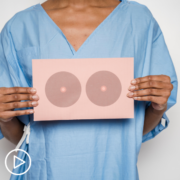
Noted Racial, Ethnic, and Socioeconomic Disparities In Breast Cancer Outcomes |
Transcript:
Lisa Hatfield:
Why is clinical trial participation so important in breast cancer? And what advice do you have for patients considering a clinical trial?
Dr. Demetria Smith-Graziani:
So clinical trials are vitally important to advancements in breast cancer treatments, all of the current treatments we have that are FDA-approved were approved because of the results from clinical trials that previous patients participated in.
And we won’t get any new advancements in breast cancer treatments and come up with even better, more effective treatments, unless we are able to do more clinical trials with more patients. The other part is that in the past, most of the participants of clinical trials have been pretty much the same, they have been mostly white, mostly have insurance, mostly of a higher socioeconomic status, and those patterns continue today, we are still trying to get the patients in clinical trials to reflect the true population of the United States. And in order to know that clinical trials are effective for everybody, we need to have everybody in those trials. So for patients who are considering a clinical trial, my activation tip is to ask your oncologist, “Are there any clinical trials that’d be a good fit for me?” And if they mention some trials, I would ask for a copy of the consent form to read over it, which they need to provide to you anyway, and take so time to read over it on your own and ask any questions that come up so that you completely understand what the clinical trial involves, if there are any cost to the trial, how much time you would have to spend in the clinic or in a hospital getting this special treatment under the trial, and any other concerns that you might have about the trial.
Share Your Feedback:
Create your own user feedback survey


